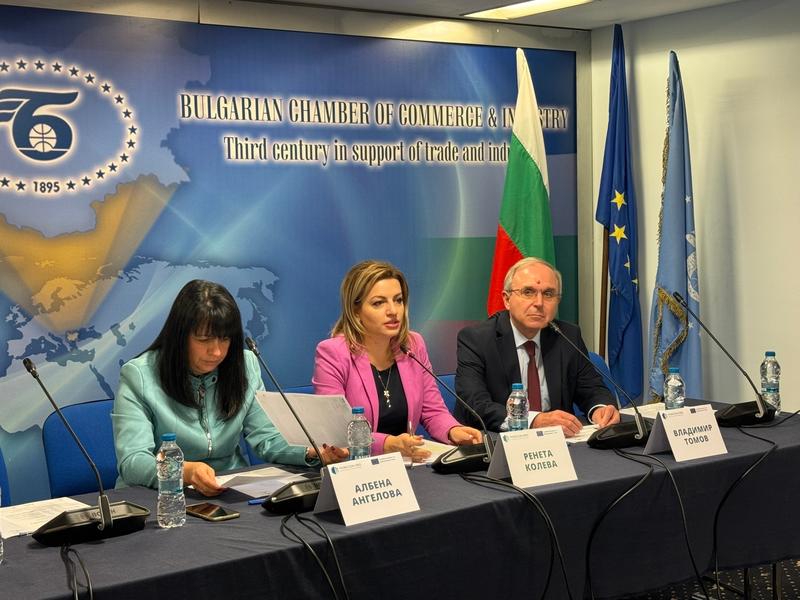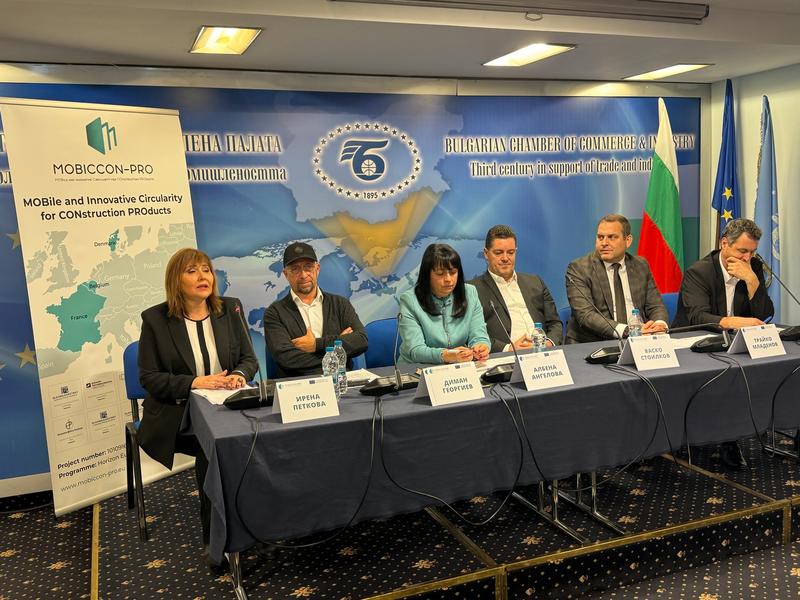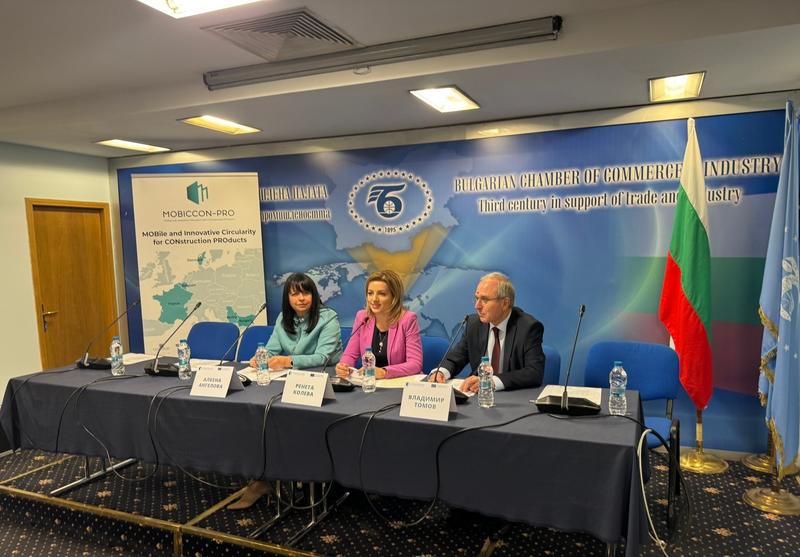Deputy Minister Reneta Koleva participated in the conference "Circular Economy in the Construction Industry"
12 Dec, 2023 | 19:00The Deputy Minister of Environment and Water Reneta Koleva participated in the opening of the conference "Circular Economy in the Construction Industry - Latest Trends in Europe and Bulgaria", hosted by the Bulgarian Chamber of Commerce and Industry.
Representatives of state institutions, local authorities, the business, the academia, industry associations, and NGOs discussed how they can work jointly to ensure a sustainable future where economic development and prosperity go hand in hand with reducing construction waste and protecting the environment. Ideas and experiences were exchanged between those responsible for construction waste management, as well as good practices implemented in leading countries, such as Belgium and Denmark.
Deputy Minister Koleva pointed out that the National Strategy for Circular Economy identifies construction and demolition waste as a priority area, highlighting the leading role of the construction industry in the transition to a circular economy through the development and implementation of resource-efficient solutions to make it more competitive but at the same time reduce the environmental and climate footprint of its activities.
Deputy Minister Koleva also addressed the municipal authorities, who face construction and demolition waste as a challenge, but also as an opportunity for more efficient use of resources and energy.
"Local authorities can play a much more active role in the efforts of promoting the circular economy. As the main contracting authority, they can set requirements for environmentally friendly goods, services and environmental management systems," explained Deputy Minister Koleva.
She informed the attendees that under the Environment Programme 2021-2027, funding was provided for the construction of separate collection and preparation for re-use centres in the amount of nearly 145 million BGN. The measure targets all Bulgarian municipalities and includes the construction of municipal centres and systems for separate collection of household waste streams - paper, plastic, metal, glass, bulky waste, as the territory of such a centre may also include the possibility for collection and recycling of household construction waste. The purchase and supply of the necessary equipment for waste transportation is also foreseen.
It was noted at the forum that at the end of March this year a National Strategy and Roadmap for Digital Transformation of the Construction Sector by 2030 - developed by the Ministry of Regional Development, was adopted. It envisages the development of a national digital platform for construction that will enable information sharing and establishing connections between the sources of different types of construction and demolition waste, the availability of different types of recycled building materials at regional recycling facilities, and the construction sector in the country.
At the conference, local government representatives presented a vision for the recovery and management of construction waste. Topics discussed included the regulatory framework, best practices for circular construction and selective demolition, funding opportunities for green projects and initiatives, and future development trends in the sector. Progress on the MOBICCON-PRO project, an international research initiative in the field of circular construction funded by the EU's Horizon Europe programme and aimed at developing innovative solutions for the production of high-end recycled building materials, was also presented.


